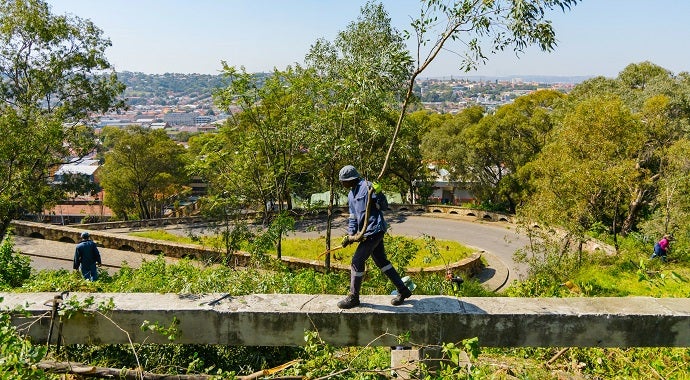The article discusses the urban sprawl in African cities, particularly how it impacts watersheds essential for water supply and climate resilience. Growing populations in places like Kinshasa and Kumasi are encroaching on these vital areas, leading to water scarcity and degradation of water quality. Nature-based solutions, particularly through the SUNCASA project, are being implemented in cities such as Kigali, Dire Dawa, and Johannesburg to restore watersheds and improve environmental conditions.
In Kigali, reforestation efforts are focused on the Nyabarango River, combating deforestation’s impact on soil stability and flood risk. Dire Dawa is rehabilitating groundwater sources by planting indigenous trees to combat the decline of its water table. Similarly, Johannesburg is taking steps to combat flooding and pollution by planting trees and removing invasive species along its waterways.
By prioritizing natural infrastructure alongside urban development, city leaders can create resilient urban environments that benefit both communities and ecosystems. The SUNCASA project embodies this integrated approach, fostering sustainable urban growth that enhances water security and promotes biodiversity.
Source link


